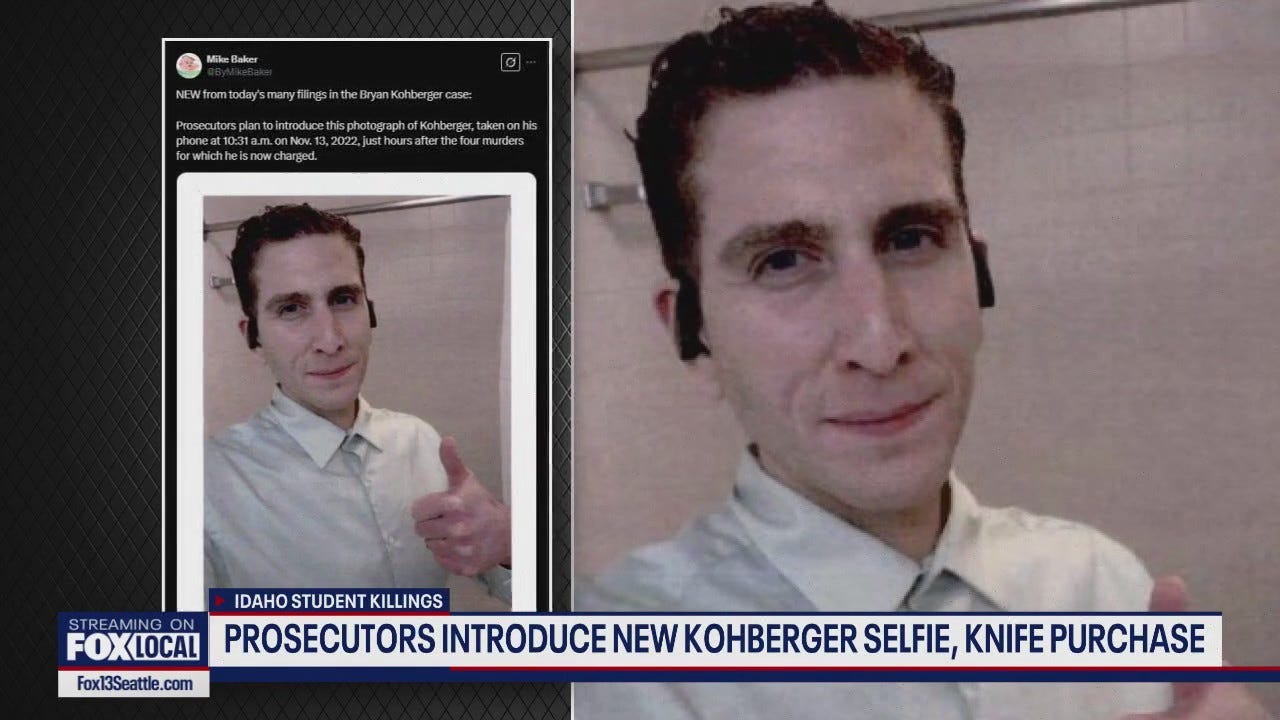Bryan Kohberger allegedly bought military-style knife in months before Idaho student stabbings

Prosecutors say the suspect charged with murdering four University of Idaho students in 2022 bought a military-style knife, a sheath and a knife sharpener on Amazon months before their deaths, new court documents reveal.
Among a series of filings Wednesday, Latah County, Idaho, prosecutors asked a judge to allow them to present Bryan Kohberger's online shopping patterns as evidence at his upcoming quadruple murder trial in August.
Prosecutors also want to cite a housemate of the victims who said she saw a man with bushy eyebrows wearing a ski mask in the home when the fatal stabbings occurred in the early hours of Nov. 13, 2022.
Additionally, officials want to show a photograph of Kohberger taken from his phone allegedly time-stamped at 10:31 a.m., roughly six hours after the students were fatally stabbed at their off-campus home, that would help a jury determine whether he matches the roommate's description.
In the selfie, Kohberger is seen smiling and giving a thumbs-up sign, apparently in front of a tiled shower in a bathroom.
Still, Kohberger's defense attorney has sought to exclude any evidence referring to "bushy eyebrows" during the trial, arguing it could unfairly set the man up with jurors. In a court filing last month, Kohberger's lawyers wrote, "If evidence of 'bushy eyebrows' is presented to the jury, the jury might well believe that Mr. Kohberger is guilty simply because of 'bushy eyebrows.'"
The filings are the latest episode in the debate over what evidence will be admissible in court. Kohberger, 30, is charged with first-degree murder in the deaths of Madison Mogen, 21; Kaylee Goncalves, 21; Xana Kernodle, 20; and Ethan Chapin, 20. Police investigators said DNA evidence, cell phone data and surveillance footage linked him to the crimes at the students' off-campus rental home in Moscow, Idaho.
Past court filings revealed the former criminology student at nearby Washington State University in Pullman, Washington., was a "statistical match" to DNA pulled off a knife sheath left near one of the victims' bodies.
A judge previously entered a not guilty plea on Kohberger's behalf. The trial is scheduled to start in August and is expected to last about three months.
Prosecutors have said they're seeking the death penalty if Kohberger is convicted. However, Kohberger's lawyers have argued their client shouldn't face the death penalty because he is on the autism spectrum and it could violate his constitutional rights.
Last month, Judge Steven Hippler ruled the DNA and records from Kohberger's cell phone and online accounts, which investigators received via search warrants, could be included in Kohberger's trial.
Kohberger's attorneys take exception
In response to the prosecution's filings this week, Kohberger’s defense attorneys took issue with what they describe as a selective use of phone records for Kohberger and the victims' surviving roommates Dylan Mortensen and Bethany Funke.
In separate filings, Kohberger’s attorneys point to two surviving roommates waiting several hours between when they perceived something suspicious the morning of the killings and when they called 911 before noon. A court filing by the defense argues that the surviving roommates were awake texting and using social media for hours before noticing something was wrong.
The defense attorneys have asked the judge to either prevent prosecutors from showing a specific selection of their text messages to jurors or admit more phone records to be used during the trial.
A judge has put the case under a gag order prohibiting lawyers from publicly discussing it. Kohberger is due back in court on April 9.